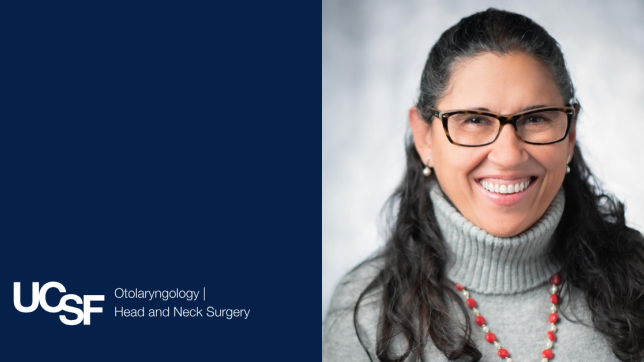
Telephone-based telehealth can provide patients with an even more accessible and equitable option than video-based care, but is it effective? That's the question recently answered by researchers from the University of California, San Francisco (UCSF), including faculty from the Department of Otolaryngology – Head and Neck Surgery (OHNS) — a question that was particularly important during the COVID-19 pandemic.
The team share their findings in "Utility of telephone visits at an urban safety-net hospital during 2020: A retrospective review." The work was published in Laryngoscope Investigative Otolaryngology.
During the COVID-19 pandemic, UCSF OHNS clinicians were among the many providers globally that took advantage of telehealth (when possible) to continuing providing care while minimizing the risk of contagion. But for many of the patients at the Zuckerberg San Francisco General Hospital, traditional telehealth with video wasn't an option due to limited resources, prompting the authors to research the efficacy of phone-only care.
"We wanted to investigate whether or not telephone-based telehealth would provide good care in a disadvantaged patient population," says UCSF OHNS's Jeffrey Sharon, MD, the senior author on the paper.
The authors' objective was twofold: determining the efficacy for telephone-only audio visits for underserved patients seeking otolaryngological care and identifying the patient factors associated with phone visit attendance. The results showed that telephone visits are accessible to patients and be used for several different aspects of otolaryngological patient care. The authors did not find any patient demographic factors that were significantly associated with missing telephone appointments.
The findings indicate the potential of telehealth to improve health equity by increasing the accessibility of medical care, particularly in areas of low physician density and for underserved patient populations.
"Despite limited diagnostic capabilities, telephone audio visits can be an effective and accessible tool for providing continuity and advancing care in socially disadvantaged patients," write the authors, led by first author Eric Kim, a medical student at the UCSF School of Medicine.
The researchers conducted a retrospective review of all adult telephone visits in 2020, a total of 318 telehealth appointments completed by 254 patients, 72.8% of whom were of racial or ethnic minority; 76.3% had low-income, need-based insurance; and 43.7% had limited English proficiency.
"Our retrospective review reveals that telephone visits may be limited diagnostically but can be instrumental in providing continuity and advancing patient care through care coordination, counseling and managing pharmacotherapy," writes the team. "By elucidating the patterns of the applications of telephone visits, we hope to identify how to best optimize our telehealth delivery and inform our improvement and education efforts to best benefit socially disadvantaged patients."
Co-authors of the paper included UCSF OHNS's Shauna Brodie, RN, MS, FNP, UCSF School of Medicine student Joseph Kidane and Delphine Tuot, MD, of the UCSF Division of Nephrology and the Center for Vulnerable Populations at the Priscilla Chan and Mark Zuckerberg San Francisco General Hospital.
Read more research and news from UCSF OHNS.




